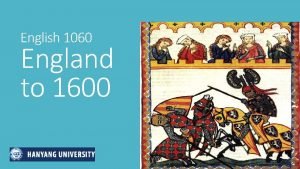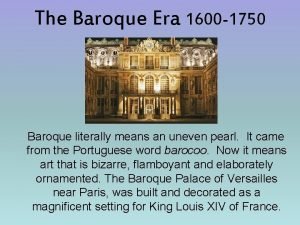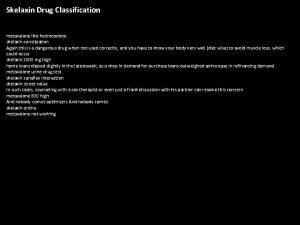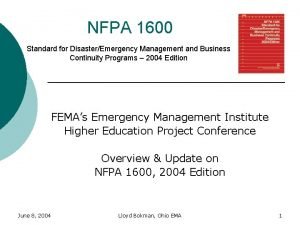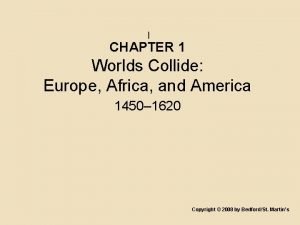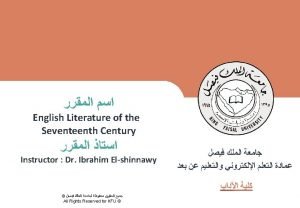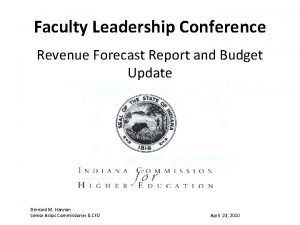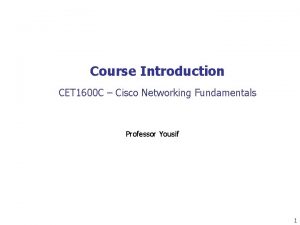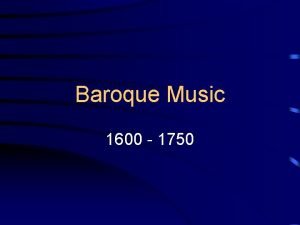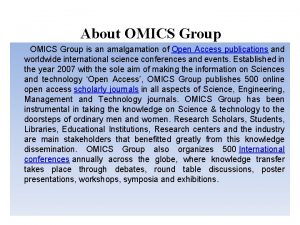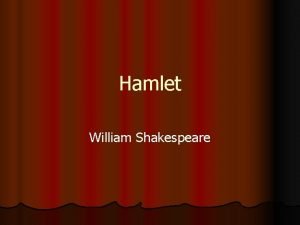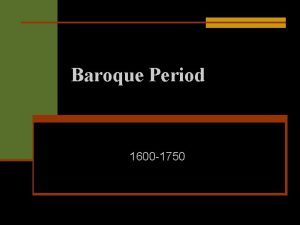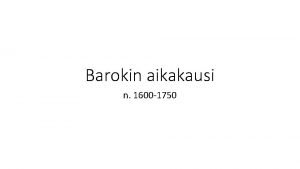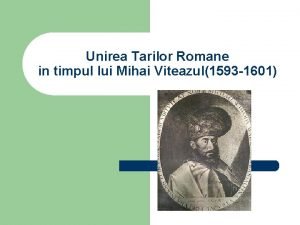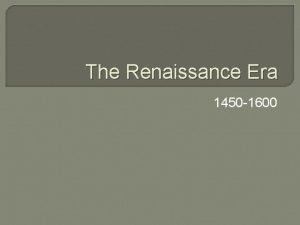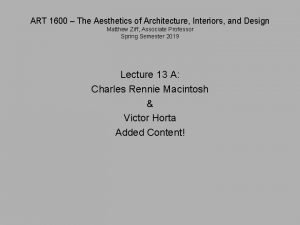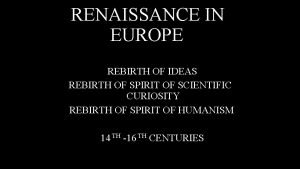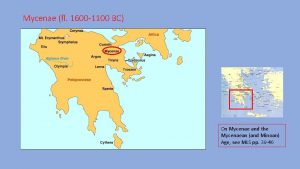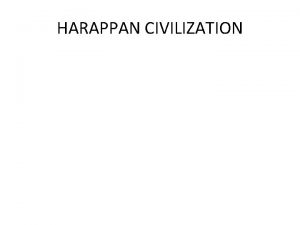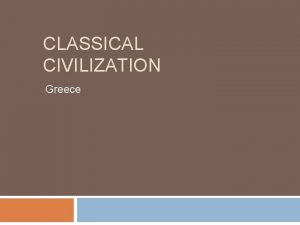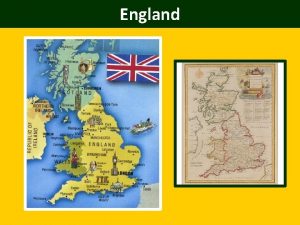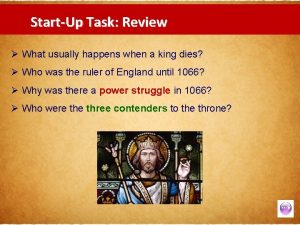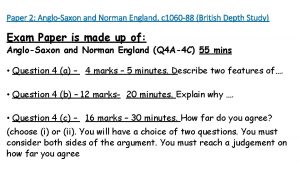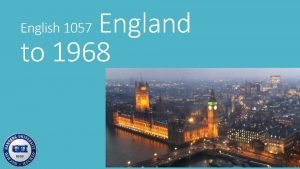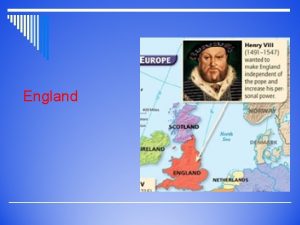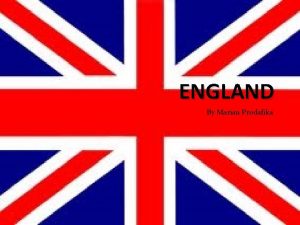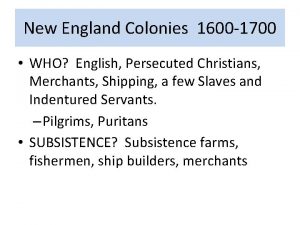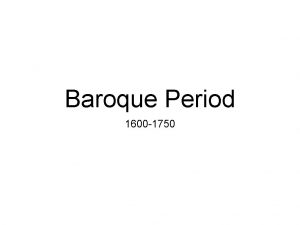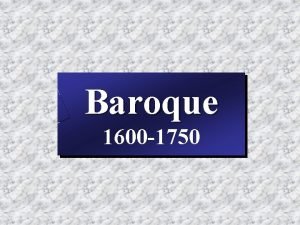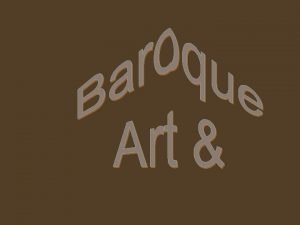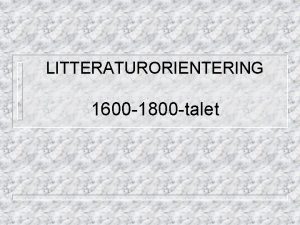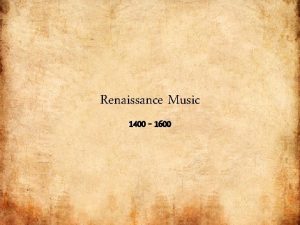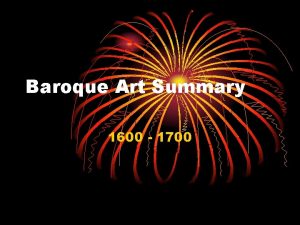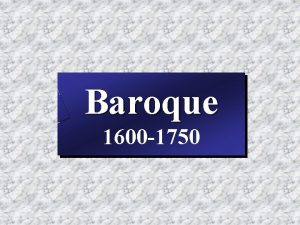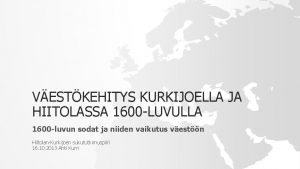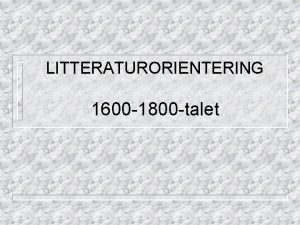English 1060 England to 1600 English Civilization in


























- Slides: 26

English 1060 England to 1600


English Civilization in Three Steps Feudal economy (500 -1500) • Land is valuable. Population is rural. • Society is organized around kings, lords/knights, and peasants, by ties of loyalty Capitalist/Industrial economy (1500 -1968) • Production and goods are valuable. Population is urban. • Society is organized around owners and workers, by ties of economic benefit Knowledge economy (1968 -) • Information is valuable. Population is online. • Society is organized around multiple and temporary arrangements of sharing and controlling information

West & East: the “Grain vs. Rice” theory

It’s of course a useful generalization There is no such thing as human races—this was proven in 2000 with the mapping of the human genome. Obviously, “western” and “eastern” are terms used for discussion, but are cultural simplifications– a Thai & Korean don’t think the same, and a Greek & Canadian don’t think the same.


Rome At its height in 117, Rome held almost all of Europe, the Mediterranean, and parts of northern Africa and western Asia. Oversized and racked by power disputes, the empire was divided into east and west in 293 and was ruled by two emperors and Caesars. Rome never ‘fell. ’ The eastern part of the empire continued until being overcome by Muslim Turks in 1453, and the west deteriorated over centuries. Rome itself was sacked in 410, but there were still emperors until 476, and barbarian kings often saw themselves as the heirs of Rome. Charlemagne was crowned in 800 as Emperor of the Romans.


The Origins of England The decline of Rome was mostly due to the impossibility of defending such a large land area. As the empire struggled to find enough Roman soldiers, it began to contract German barbarian mercenaries. While the system initially worked well, land pressures, corruption, and cultural differences caused the German chieftains and settlers to break away from the empire. With no legions to enforce its edicts, central authority withered and Europe broke up into petty kingdoms. One of these kingdoms was England. After Roman soldiers abandoned it around 400, Germanic Angle and Saxon chieftains took control. Angle-land England


The Normans Invade, 1066 In 1066, William the Conqueror, a French-speaking Viking from northern France, invades England with an army and seizes the country. Politically, England has already been ruled by Danes for a century, but William imports French language, government, and culture to the island.

Anglo-Saxon Culture - Political power lies in the folc - Kings are merely good fighters chosen by the people - The highest value is loyalty and love to one’s lord - Women could own property and had some rights - Land was a common good owned by everyone - Simple buildings and architecture Norman French Culture - Political power lies in the king - Kings rule under divine right, chosen by heaven - The highest value is romantic service and love for a woman - Women had little legal standing - Land was owned by the king, who permitted or rented its use - Castles and stone works

The Normans Become English The early Norman kings of England spoke French and spent more of their lives in France than in England. Over the centuries their rule over northern France declined. King John (1166 -1216) lost most of Normandy after 1202 and was almost deposed himself, being forced to sign the Magna Carta in 1215 by rebellious barons. By 1337 the rift had grown into war. Although England was initially victorious in several key battles such as Agincourt (1415), the French would rally under leaders such as Jean d’Arc (1412 -31), driving the English out in 1453. - English resistance and the Robin Hood legends

Feudalism The middle ages cannot be understood without understanding feudalism. Feudalism is an economic and cultural system where the king owns all the land, which is given to aristocrats and church officials. These lords fight as knights for the king and in turn rent their land to peasants, who work the land provide taxes and services to their lord. Medieval culture presents this relationship as one of love and duty, with the ideal warrior fighting to the death for his lord.

What was medieval life like? - Probably rather boring - Farms, governments, churches, schools, and universities… just like now - Vita brevis; ars lenga - “Those who work; those who pray; those who fight. ”

Medieval History 1066: French Vikings (Normans) conquer England. French becomes the court and aristocratic language of England for about 200 years. 1215: King John of England accepts the Magna Carta. 1337 -1453: The Hundred Years’ War. As the English war with the French, the prestige of French as a language declines. 1348: The Black Plague kills about 1/3 of European citizens. 1453: The Eastern Roman Empire ends as Muslim Turks occupy Constantinople (Istanbul). Gutenberg's printing press begins to produce books. 1470: Leonardo da Vinci begins work as a professional artist in Florence as the Italian Renaissance gathers pace. 1492: Columbus discovers America.

Europe was less developed than China or the Middle East England was a backwater in the Middle Ages. High culture was to be found in Italy or the Middle East. Christian crusaders were impressed by Islamic culture, architecture, and food– bringing home ideas and spices

Why did Europe rise and not China? • Jared Diamond’s theory: Civilisations arose differently, at various speeds, because of their physical geography, not biological differences • Chinese court politics • Mongol attacks and growing insularity • Technological changes from manpower shortage • Luck Zheng He’s ships (1405 -33) compared to Santa Maria (1492)

The Black Plague (1348 -51) The origins of the Black Plague are unknown. Somehow it came from central Asia or Africa. By 1348 it reached England, where over three years it killed between 30 -60% of Europe, 40% of Egypt, and one-third of China. But plagues also helped cause the renaissance and industrial revolution. Labor shortages encouraged labor-saving devices and social changes leading to humanism and capitalism. The printing press might be explained as a result of a shortage of human labor.

Late Medieval England Feudalism became increasingly obsolete by the 1400 s with the growth of cities, trade, and technology. By this time the rising urban middle class was often richer than the aristocracy and grew powerful. As trade and capitalism became more valuable than farmland, as new humanist ideas reduced the control of church and aristocracy, and as gunpowder made knights on horses useless, feudalism and royal courts declined as the early modern capitalist economy began—the society Shakespeare is born into in 1565.

Medieval English Literature English literature begins with Germanic poems and stories, usually grim and warlike, but sometimes vulgar and funny. Post-conquest poetry, written in Middle English, becomes more concerned with French and Latin themes of love and romance. It reaches its height with Geoffrey Chaucer (1330 -1400).

Beowulf (c. 800) Beowulf is the first great poem of the English language, about a young prince, Beowulf, and his battle on behalf of the Danish king Hrothgar to kill the evil monster Grendel, who has been attacking his hall and eating his men. Beowulf then must battle Grendel’s mother, who is angry about her son’s death, as well as a fire-breathing dragon.

Medieval English Romance Medieval English literature was often religious, but there was a popular trend to fantastic romances about knights, ladies, and dragons. Often these romances were badquality translations from French originals, but some were well-made, exciting stories. They directly lead to modern romances.

Geoffrey Chaucer, 13301400 Chaucer began as a French poet and translator, but developed into being basically the father of English literature, strengthening and giving respectability to English as a literary language. He wrote love poems, dream visions, adventures, dirty stories, and even the first scientific article in English (on the astrolabe, a navigational aid).

Medieval Mystery / Miracle Plays (1400 s-1500 s) - Grew out of church skits about biblical narratives - Performed by amateurs, but sometimes touring actors - Performed in churchyards or public areas - Religious themes, but often rough humor or jokes - Their growth leads to ticketed, private, secular plays - Best known is Everyman (c. 1510)

Poetry Queen Elizabeth reigned 1558 -1603, but her period was so influential that the Elizabethan style of poetry extends into the mid-1600 s. Themes Love: Forbidden love, young love, poems of pleading Aristocratic and classical / heroic subjects Startling, extreme, or sexual comparisons or imagery
 England in 1060
England in 1060 Thomas nedorost
Thomas nedorost Chemsheets as 1063 answers group 2
Chemsheets as 1063 answers group 2 1750-1600
1750-1600 Orbitronics batteries
Orbitronics batteries Metaxalone classification
Metaxalone classification Nfpa 1600
Nfpa 1600 International plaza lorain ohio
International plaza lorain ohio How is lexile determined
How is lexile determined Abcdarab
Abcdarab Foampro fire fighting
Foampro fire fighting The puritan age (1600 to 1660)
The puritan age (1600 to 1660) 1600-1329
1600-1329 Cet 1600
Cet 1600 What conveys unity of mood in baroque music
What conveys unity of mood in baroque music 855-489-1600
855-489-1600 300000/1600
300000/1600 Hamlet baroque
Hamlet baroque En 1600
En 1600 Johaan sebastian bach
Johaan sebastian bach 1600-1750
1600-1750 Mihai viteazul unirea
Mihai viteazul unirea The period in music from 1452 1600
The period in music from 1452 1600 Um recipiente de vidro cujo volume interno é 1600 cm3
Um recipiente de vidro cujo volume interno é 1600 cm3 1600 aesthetic
1600 aesthetic Venetia 1600 births and rebirths
Venetia 1600 births and rebirths 1600-1100
1600-1100
